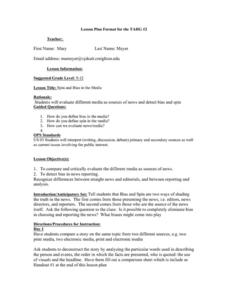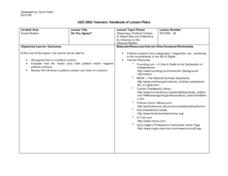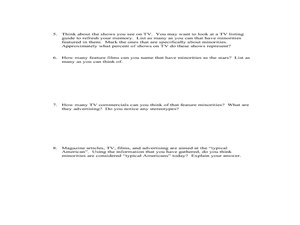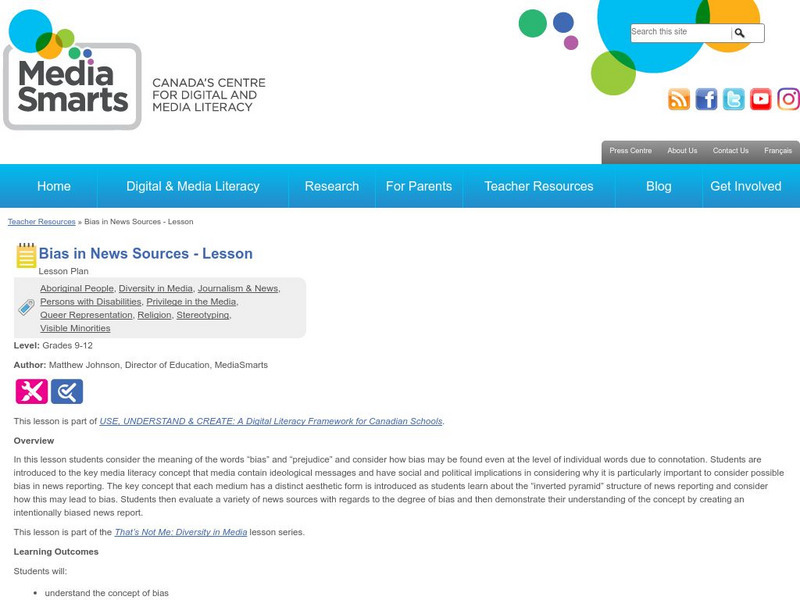Curated OER
Spin and Bias in the Media
Students compare different types of media. In this media comparison lesson, students will assess the where all types of media gets its information by viewing a video of a news story and critiquing it.
Curated OER
A Free and Open Press: Evaluating the Media
Students compare and critically evaluate the different media as sources of news, develop criteria for defining "news", experience the editorial process of selecting news stories and detect bias in news reporting.
Curated OER
Citizens and the Media / Lesson : 3 Compare and Contrast Daily Newspapers for fact, opinion and bias
Students compare and contrast a variety of daily newspapers in order to detect bias. They critically analyze the role the media plays in responsibly reporting government activities.
Curated Video
Detecting Lies & Harmful Links
Who and what can you trust online? How do you know? After viewing a pair of introductory videos on positive and safe online conduct, learners discuss the content and put it into practice during an online search activity about alien life.
National First Ladies' Library
Michigan vs. Ohio State: A Serious Rivalry!
Middle schoolers discuss and research the pros and cons of school rivalries. In particular, they study the Michigan-Ohio State rivalry. Through their research, they think about how media accounts of college football games can be shaped...
Curated OER
Do You Agree?
Students recognize bias in a political cartoon, evaluate how the media uses both positive and/or negative political cartoons, and assess the influence a political cartoon can have on a person.
Curated OER
Quality of Information: Point of View and Bias
Fifth graders identify stereotypes of Indian people based on perceived characteristics. They discuss the misconceptions. Students define quality of information and give an example from the story "Seaman's Journal: On The Trail With Lewis...
Curated OER
Media Literacy: Discovering and Understanding Propaganda
Ninth graders study different types of propaganda and select an issue that is significant to them. In this exploratory lesson students design and create posters on the topic of their choice and write a narrative describing it.
Curated OER
Minorities in Mainstream American Society
So many people fought for Civil Rights in the United States. Read about the Civil Rights Act of 1964, and discuss what the act guarantees. Then pass out a slew of magazines and encourage them to observe how often minorities appear in...
Curated OER
Empowered Barbie
Students access prior knowledge of vocabulary on feminism and psychoanalytic theory, and gender schema. In this Empowered Barbie lesson, students recreate a Barbie doll. Students write a reflection on how they changed Barbie's body and...
Curated OER
Using Primary Sources to Discover Reconstruction
Fifth graders discover how reconstruction had an impact on racial issues in the United States. In this Reconstruction lesson, 5th graders are introduced to primary vs. secondary resources and then rotate through stations to view...
Media Smarts
The Media Awareness Network: Bias
Slant, or bias, can be found in virtually every news outlet. Use this online lesson plan to help students understand how word choices and other factors can intentionally or unintentionally affect the audience's understanding.













